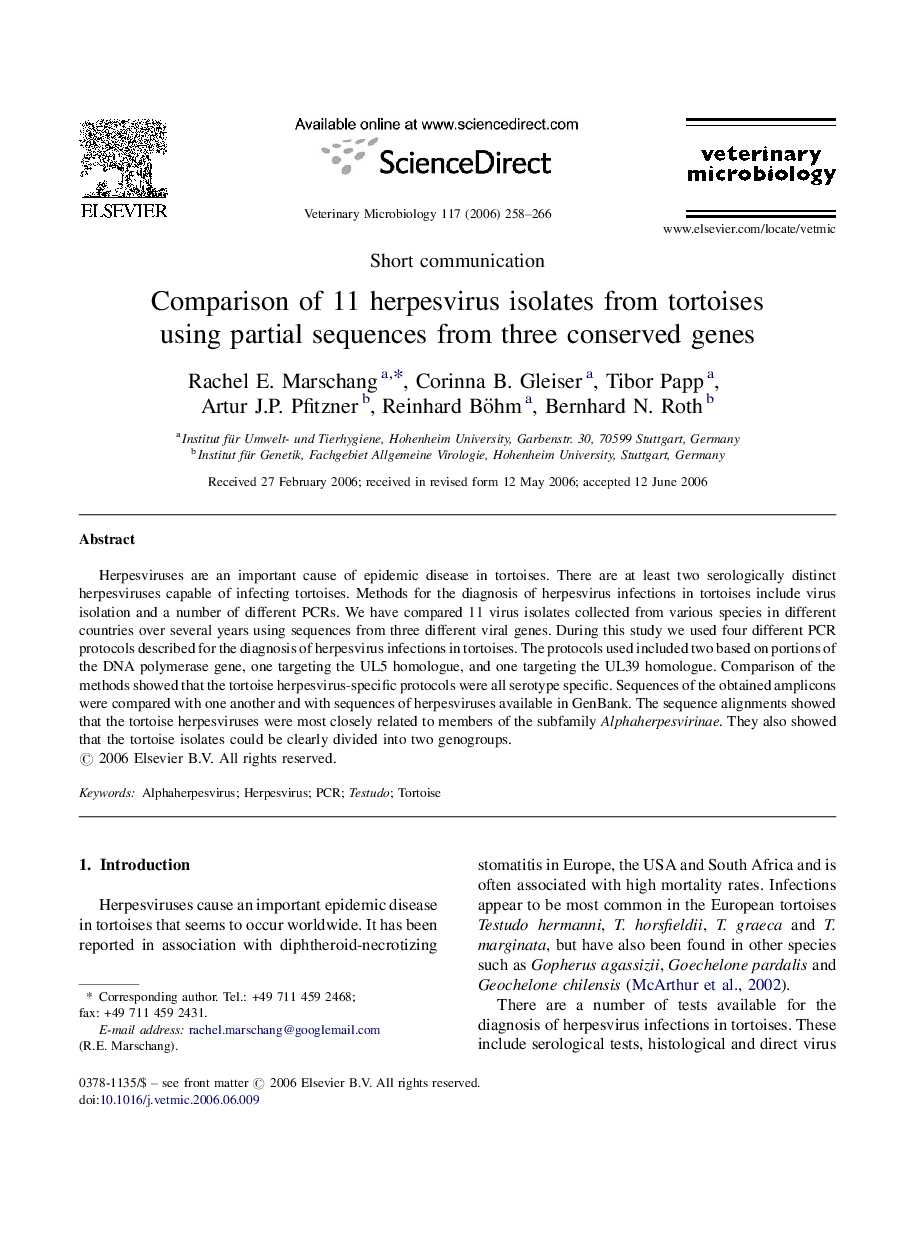| Article ID | Journal | Published Year | Pages | File Type |
|---|---|---|---|---|
| 2469649 | Veterinary Microbiology | 2006 | 9 Pages |
Herpesviruses are an important cause of epidemic disease in tortoises. There are at least two serologically distinct herpesviruses capable of infecting tortoises. Methods for the diagnosis of herpesvirus infections in tortoises include virus isolation and a number of different PCRs. We have compared 11 virus isolates collected from various species in different countries over several years using sequences from three different viral genes. During this study we used four different PCR protocols described for the diagnosis of herpesvirus infections in tortoises. The protocols used included two based on portions of the DNA polymerase gene, one targeting the UL5 homologue, and one targeting the UL39 homologue. Comparison of the methods showed that the tortoise herpesvirus-specific protocols were all serotype specific. Sequences of the obtained amplicons were compared with one another and with sequences of herpesviruses available in GenBank. The sequence alignments showed that the tortoise herpesviruses were most closely related to members of the subfamily Alphaherpesvirinae. They also showed that the tortoise isolates could be clearly divided into two genogroups.
